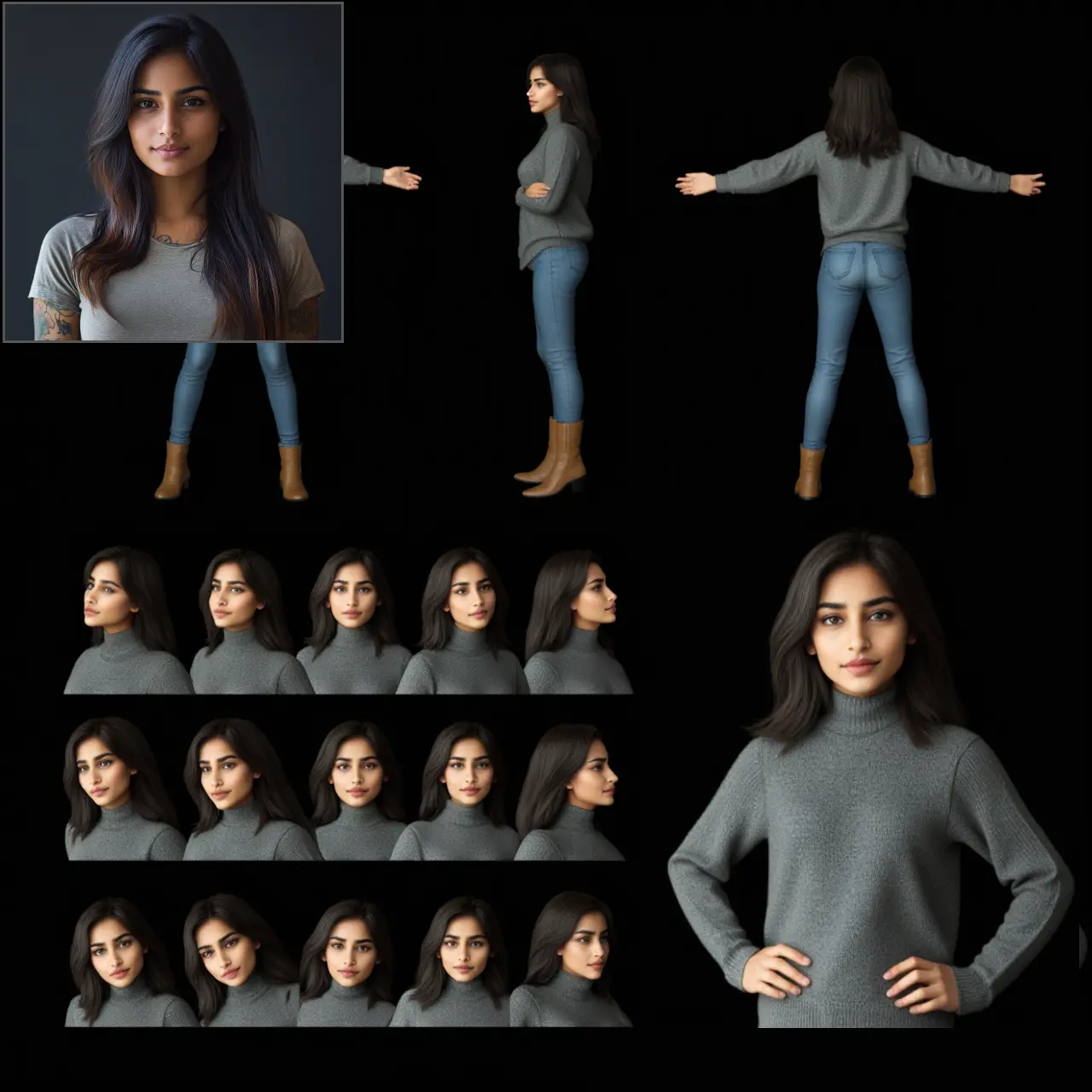ComfyUI Node: CLIPTextEncode (NSP)
CLIPTextEncode (NSP)
CategoryWAS Suite/Conditioning
WASasquatch (Account age: 4910days) Extension
WAS Node Suite Latest Updated
2025-03-27 Github Stars
1.44K
How to Install WAS Node Suite
Install this extension via the ComfyUI Manager by searching for WAS Node Suite- 1. Click the Manager button in the main menu
- 2. Select Custom Nodes Manager button
- 3. Enter WAS Node Suite in the search bar
Visit ComfyUI Online for ready-to-use ComfyUI environment
- Free trial available
- 16GB VRAM to 80GB VRAM GPU machines
- 400+ preloaded models/nodes
- Freedom to upload custom models/nodes
- 200+ ready-to-run workflows
- 100% private workspace with up to 200GB storage
- Dedicated Support
CLIPTextEncode (NSP) Description
Encode text prompts into CLIP model embeddings for image generation guidance using advanced parsing techniques and dynamic text modification.
CLIPTextEncode (NSP):
The CLIPTextEncode (NSP) node is designed to encode text prompts into embeddings using a CLIP model, which can then be used to guide diffusion models in generating specific images. This node leverages advanced text parsing techniques, such as "Noodle Soup Prompts" and wildcards, to dynamically modify and enhance the input text based on a given seed. By transforming the text into a format that the CLIP model can process, it ensures that the resulting embeddings are highly relevant and tailored to the desired output. This node is particularly useful for AI artists looking to create more nuanced and contextually rich image generations by providing a sophisticated method for text-to-image conditioning.
CLIPTextEncode (NSP) Input Parameters:
mode
This parameter determines the text parsing method to be used. The available options are "Noodle Soup Prompts" and "Wildcards". "Noodle Soup Prompts" allows for dynamic and complex text modifications, while "Wildcards" enable the replacement of specific placeholders within the text. The choice of mode impacts how the text is processed and ultimately encoded. Default value is "Noodle Soup Prompts".
noodle_key
This is a string parameter used as a key for parsing text when the mode is set to "Noodle Soup Prompts". It defines the delimiter for identifying sections of the text that need to be dynamically modified. The default value is __, and it should not be multiline.
seed
An integer parameter that sets the seed for randomization in text parsing. This ensures reproducibility of the text modifications. The seed value can range from 0 to 0xffffffffffffffff, with a default value of 0. Setting a specific seed allows for consistent results across different runs.
text
This is the main text input that you want to encode. It supports multiline input, allowing for complex and detailed prompts. The text will be parsed and modified based on the selected mode and noodle_key before being encoded by the CLIP model.
clip
This parameter specifies the CLIP model to be used for encoding the text. The CLIP model is responsible for converting the processed text into embeddings that can guide the diffusion model.
CLIPTextEncode (NSP) Output Parameters:
conditioning
This output contains the conditioning data, which is the embedded text used to guide the diffusion model. It is a crucial component for ensuring that the generated images align with the input text prompt.
parsed_text
This output provides the text after it has been parsed and modified according to the selected mode and noodle_key. It allows you to see the final version of the text that was encoded by the CLIP model.
raw_text
This output returns the original text input without any modifications. It serves as a reference to compare against the parsed_text and understand the changes made during the parsing process.
CLIPTextEncode (NSP) Usage Tips:
- Use a consistent seed value to ensure reproducibility of results when experimenting with different text prompts.
- Experiment with both "Noodle Soup Prompts" and "Wildcards" modes to see which one better suits your creative needs.
- Review the parsed_text output to understand how your input text is being modified and make adjustments to the noodle_key or text as needed.
CLIPTextEncode (NSP) Common Errors and Solutions:
"Invalid seed value"
- Explanation: The seed value provided is outside the acceptable range.
- Solution: Ensure that the seed value is an integer between 0 and 0xffffffffffffffff.
"Unsupported mode selected"
- Explanation: The mode parameter is set to a value that is not recognized.
- Solution: Set the mode parameter to either "Noodle Soup Prompts" or "Wildcards".
"CLIP model not provided"
- Explanation: The clip parameter is missing or not properly specified.
- Solution: Ensure that a valid CLIP model is provided as input to the node.
"Text input is empty"
- Explanation: The text parameter is empty or not provided.
- Solution: Provide a non-empty text input to be encoded by the CLIP model.
CLIPTextEncode (NSP) Related Nodes
RunComfy is the premier ComfyUI platform, offering ComfyUI online environment and services, along with ComfyUI workflows featuring stunning visuals. RunComfy also provides AI Models, enabling artists to harness the latest AI tools to create incredible art.


